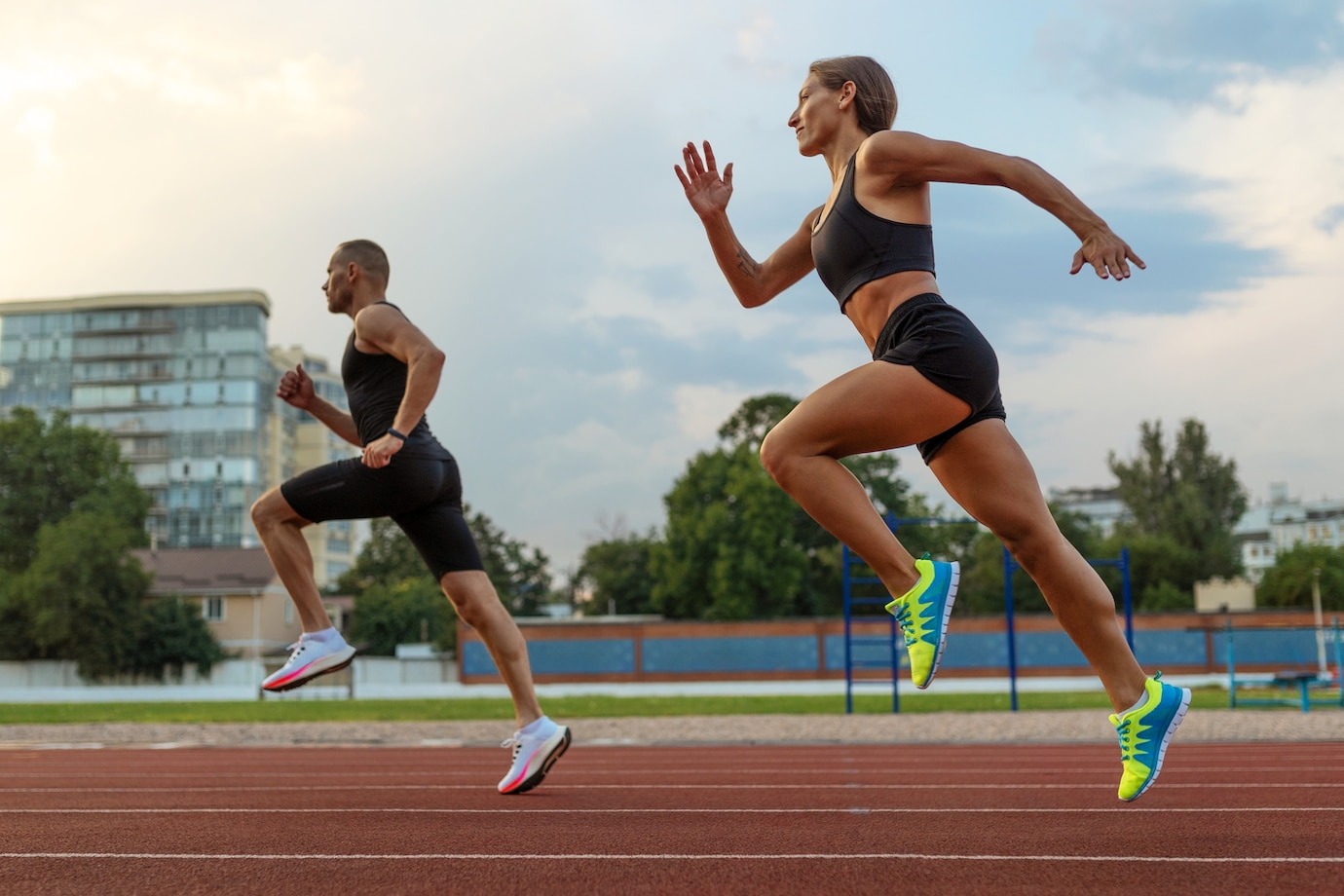Do you avoid exercise because you don’t like to sweat? It’s understandable if you are not a big fan of some of the side effects of sweating like clammy hands, clothing stains, hairstyles gone bad and let’s not forget that lovely, distinctive odor. However no two people sweat the same amount even under the same conditions which is why the guy on the treadmill next to you might be dry as a bone and able to go back to work as fresh as he was before he started. Understanding your body’s natural reaction to heat and exercise might help you adapt to it and accept it. So what can you do if you want to beat sweat at the source? First of all it is important to know exactly what sweat is and how your body works to produce it.
Sweat is a mix of water, salt, and other minerals that help cool you down when it is hot out or when you exercise by wetting the skin and then evaporating leaving a cooler layer or air around your body. However, there are two different kinds of sweat: Eccrine, which is a thin liquid that covers your whole body when you exercise or in heat, and then there is apocrine, which is a thicker secretion that occurs mainly under your arms. Apocrine is the sweat that is associated with odor and can be related to stress, diet and health. The main reason that the underarms tend to smell is due to the fact that there is a bacteria that lives in the underarm area that consumes sweat and produces BO as a byproduct.
Stress, diet, and health can also influence how much you sweat, but this is mainly determined by your genetics; if your mom and dad sweat a lot when it is hot or when they exercise, chances are you will too. The most commons areas that are prone to sweating are the underarms, palms of the hands, soles of the feet, and the forehead since these areas have the highest density of sweat producing glands closest to the surface of the skin. However, everyone is different and you may begin sweating elsewhere if a different area gets the signal to sweat first.
Sweating isn’t completely reliant on genetics and how much you sweat could simply be your body adapting to its environment. People who live in hotter environments sweat more efficiently than those who live in colder areas, as do people who exercise regularly versus people who exercise infrequently; their bodies learn how to stay cooler and with better efficiency. Other than genetics, fitness level appears to play the most active role in how much individuals sweat; as individuals increase their fitness levels, they become better sweaters. Fitter individuals typically sweat sooner and more. Why some people sweat more than others is also determined by the number of sweat glands they possess (humans are born with 2–4 million sweat glands). On a related note, using a sauna may not help you to lose weight, but it could help your body acclimatize to a hotter environment and therefore sweat more efficiently in hot conditions.
Determine your own sweat rate to replace lost water. Weigh yourself naked pre- and post-exercise, and then adjust for deficits. For instance, someone weighing 152 pounds prior to exercising, and 130 pounds after exercise would need to replace 2 pounds of water weight, or 32 ounces of water (152 – 150 = 2 lb. = 32 oz.).
You can fight odor and stay dry by choosing the right product for the job. Deodorants work to stop body odor but they don’t do anything for moisture and wetness. If you want to stop both odor and moisture you want to find an antiperspirant. However, antiperspirants aren’t for everyone as some people have sensitive skin that doesn’t react well with them; it’s a good idea to test your skin care products since some may have chemicals that don’t work well with your particular skin type. You can apply antiperspirant anywhere that you sweat, but bear in mind that some areas of the body are more sensitive than others. Dusting the area with baking soda is a good alternative for sensitive areas like the inner thigh and the under-breast areas.
Other areas that are prone to sweating such as the scalp and feet can be combated with dry shampoo and shoe inserts. To get that most out of your antiperspirant you want to make sure to apply it the night before and then reapply it in the morning when you wake up. The active ingredient in antiperspirant needs to get into the sweat glands to work properly and applying it at night when your skin is cool will allow it to get to work and absorb more efficiently than if you are already sweating. To help the body sweat more efficiently take into account what you wear while you exercise and wear clothing that is designed to pull sweat and moisture away from the skin and help it to evaporate faster.
Remember that sweating is a normal, and sometimes annoying, part of life. If you find that you sweat profusely even when using antiperspirant you may want to consult with your dermatologist in regards to obtaining a prescription antiperspirant or even laser hair removal to more effectively combat moisture and odor. And remember if you have trouble cooling down after working out, take a cold shower or just stick your feet in to cool down fast. Don’t let your body’s natural response to exercise cause you to avoid exercising
Thank you for reading and have a healthy week!
Contributors: Kim Farmer and Michelle Beachem of Mile High Fitness. Mile High Fitness offers in-home personal training and corporate fitness solutions. Visit milehighfitness.com or email inquires@milehighfitness.com






2 thoughts on “Too Hot To Exercise? Don\’t Sweat It!”
im glad someone is miankg this documentary. i have struggled off and on since i was 12 (im 26 now) with self harm, eating disorders, and drug use. i find that pot keeps me feeling good if i smoke it a few times a day but my significant other hates it, thinks im a druggie and resents me for spending so much money on it. a therapist i saw after my dad’s suicide told me i could cure myself of all my addictions by taking 5 minutes to myself a day to do something i enjoy.. what a croc of shit.
hello thanks for your comment. I’m sorry to hear about your dad and if you are addicted to anything I’m sorry to hear that too. I would love it if you could jump on our free conference call where my therapist friend will be discussing some of the psychological issues around eating disorders and self harm. check it out at https://www.facebook.com/events/134401553436207/
thanks.